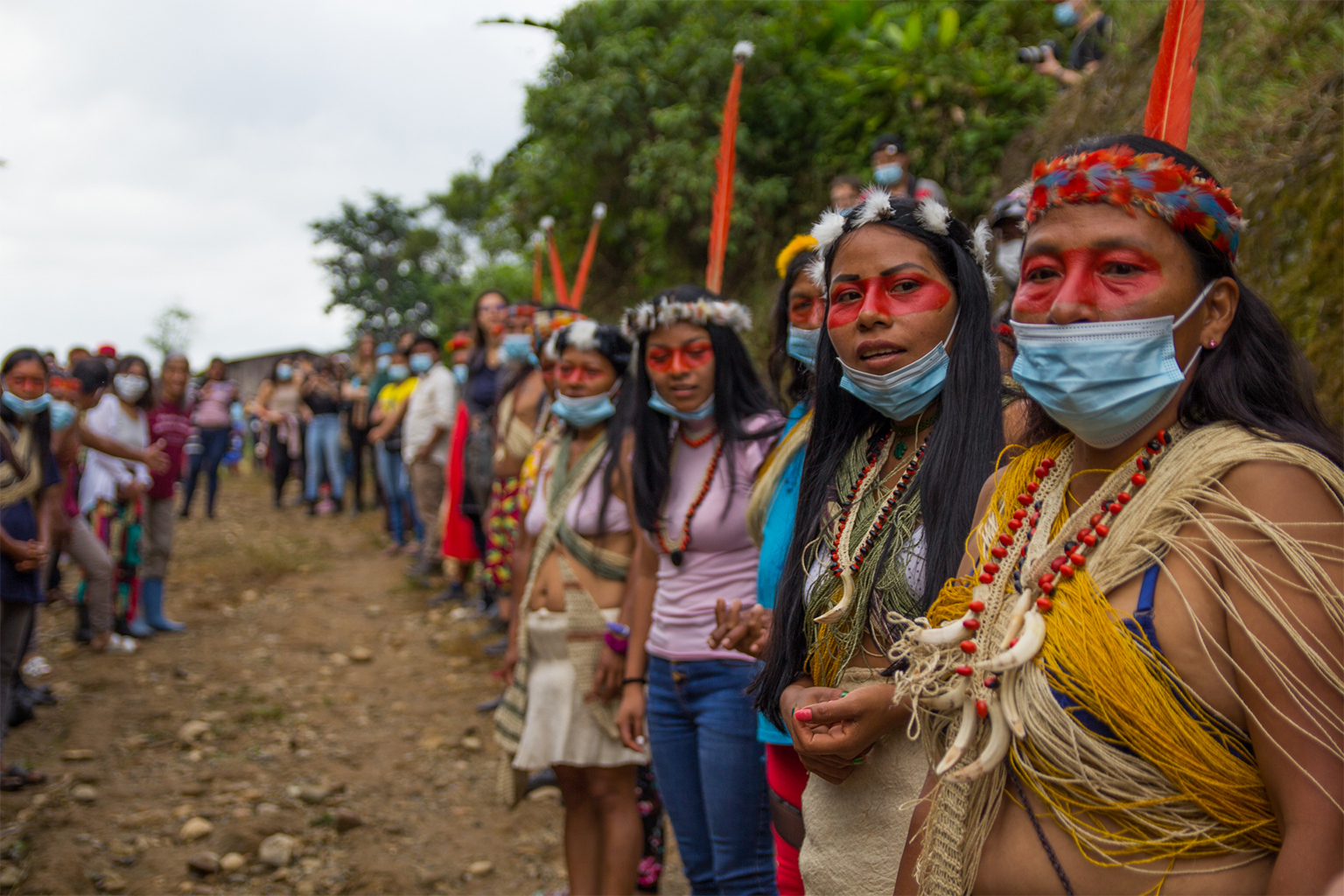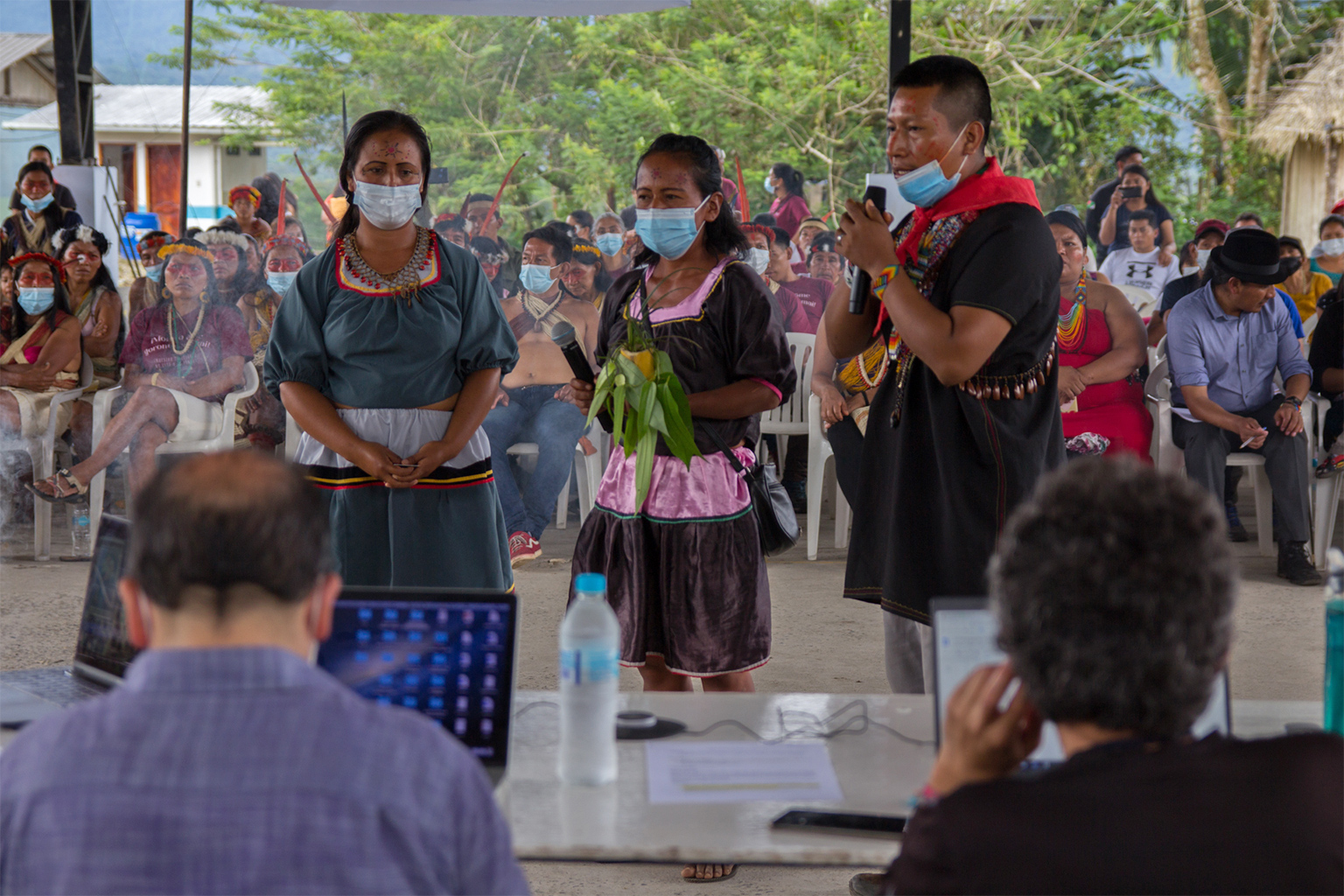For the first time in history, members of the Ecuadorian Constitutional Court have visited indigenous people in their land in the Amazon rainforest to conduct a hearing concerning the sale of mining concessions by the government. During previous hearings, indigenous people had to travel to cities which many of them could not afford.
The hearing aimed to check the observance of Free, Prior, and Informed Consent (FPIC) when granting mining concessions in the Amazon rainforest, under which the indigenous people have to be properly consulted. Furthermore, the indigenous inhabitants are fighting to secure the right to participate in the process of granting concessions.
Mining is a bone of contention in the Amazon. On one hand, it affects those territories inhabited by indigenous people, leads to deforestation, and hence contributes to global warming. On the other hand, it is a significant source of state revenue which the country wants to preserve.
Historic hearing
The unprecedented hearing took place in the Indigenous Cofan territory of Sinangoe in the Northern Amazon on 15 November where over 300 indigenous leaders who had traveled from all over the Amazon and other parts of Ecuador gathered. Five judges from the Constitutional Court went to the Indigenous Cofan Community by canoe while another participated via zoom.

“A historic event happened today and it sets an important precedent for every community and nationality,” said Marlon Vargas, President of the Confederation of Indigenous Nationalities of the Ecuadorian Amazon.
The hearing lasted for four hours and six out of the nine Constitutional Court judges listened to the testimony of 10 people from the Cofan community. Officials from different ministries responsible for mining and the environment also took part.
“I’m very excited because this is something historic, I have never heard of [judges] going to a hearing in a community,” said Alexandra Narvaez, a resident of Sinangoe and the President of the women’s association, Shamecco. “Only 10 people go [to previous hearings in cities], the whole community cannot go. So this hearing, we are all going to talk. Our opinion is important,” she told Mongabay.com.
“We want our feelings to be heard and reflected in a document that guarantees the protection of our territories,” added Wider Guaramag, leader of the A’i Cofan community in Sinangoe.
What is the hearing about?

The hearing followed a lawsuit in 2018 when the community sued the government for selling mining concessions on their territory without first consulting them. Thus the government violated FPIC which is a standard in international human rights law. The community won the case, convincing a lower court to withdraw many of the previously granted mining concessions along the Aguarico river. Now judges are reviewing that court ruling to ascertain whether FPIC was indeed violated.
The Constitutional Court noted that this case may set a precedent regarding the rights of indigenous communities to be informed of any mining projects, thus the hearing, as well as the decision of the lower court in 2018, are signs of progress in terms of the rights of indigenous people.
Government’s stance
While indigenous people not only in Ecuador but also in other parts of the Amazon fight to protect and preserve the rainforest, the governments and industry have other priorities.
During the hearing, Eduardo Andrés Chang Dávila, the attorney for the Ministry of Energy and Nonrenewable Natural Resources, said that the Constitutional Court must also protect the rights of the state to manage its strategic sectors such as oil and mining which are fundamental to the country’s economy.
Income from oil and mining accounts for over 8% of Ecuadorian GDP and the current conservative President, Guillermo Lasso, wants to expand both sectors to address economic problems such as rising levels of unemployment and poverty fueled by the pandemic although he has supported prior consultations. The government is planning to start production of gold and cooper in four mines from 2025 as well as boosting oil production to 1 million barrels per year.

